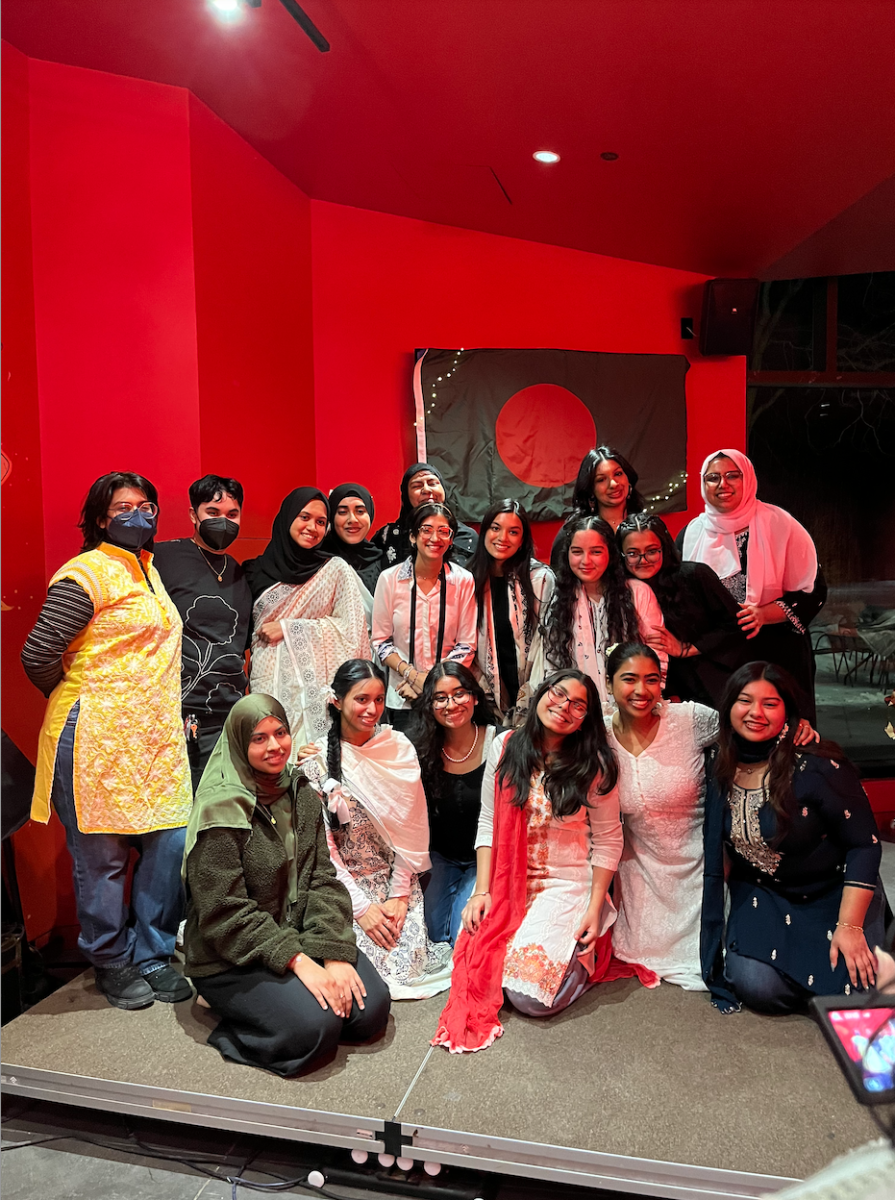On Feb. 26, Dr. Banu Subramaniam, Luella LaMer professor of women’s and gender studies and chair of the WGST department gave the second lecture in the Marjory Stoneman Douglas Voices in Environmental Justice Series. The lecture, entitled “Decolonizing Botany: Race, Gender and the Practice of Sciences,” introduced the audience to the field of Feminist Science and Technology Studies (Feminist STS) and its role in botany. Subramaniam also announced her new book which will be published in April 2024, by University of Washington Press.
“I’m going to start with talking about why feminism matters to science,” Subramaniam began, “I could do the reverse, why science should matter to feminism, but these are often on different sides of the campus, and they don’t talk to each other. My life’s work is getting these conversations going.”
Subramaniam started the lecture by inviting the audience to look at examples of where language describing gender, race and class are also used in science, from the mating behavior of rats to the construction of the International Space Station.
“We often say, ‘Oh, masculine, feminine, what does it matter?’ It matters immensely because we have histories that have always valued one over another, especially in patriarchal societies that we live in. These are not innocent categories, they are rich with history and come with meaning, they entangle with structures of power,” Subramaniam explained.
She then introduced the field of Feminist STS and why such an approach to science is necessary.
“The way I was taught science is that science is outside of culture. That scientists are objective, that miraculously, we walk through the lab door, … and who we are … goes floating out of our heads, and we become objective, pure observers. Anyone who’s learned a little bit of history of science knows that [is] false. Rather, the model we should be moving towards is that science is within culture, scientists are embedded in culture, they bring all the values of that culture into the science that they do,” Subramaniam said, continuing, “[Feminist STS] is about critiquing, looking at these histories to critiquing these claims of value neutrality, that somehow scientists can separate themselves from what they study.”
During the lecture, Subramaniam announced her upcoming book, “Botany of Empire: Plant Worlds and the Scientific Legacies of Colonialism.”
“‘Botany of Empire’ is really tracking how colonial histories shape botany. Modern botany is a colonial discipline, and unless we look at our histories, unless we are reflexive, we continue producing colonial science,” she said.
Subramaniam explained how her work in California, as well as elements of her personal life helped inform and inspire the book.
“It came because I was doing a set of experiments looking at native and foreign plants and their soil communities, out in California. I was also in the midst of my immigration process … [you] come as a non-resident alien, then you become a resident alien, then you become a naturalized citizen. But you will never be native, because natives are reserved for other people. I noticed that as I was reading scientific articles about plants, they go through the same thing. We talk about alien plants, naturalized plants and native plants. It’s the same passage, feeling a kinship to these plants I was working on,” she said.
While writing the book, Subramaniam found parallels between rhetoric used to describe immigrants and invasive species, demonstrating the connection between science and culture.
“If you look at how we talk about foreign plants and animals and how we talk about foreign humans, they are very, very similar. They are dirty, bringing diseases, bringing germs, they take over everything,” she said.
Subramaniam spent the second half of the lecture discussing the “nature-cultural” approach to dismantling colonialist attitudes in botany.
“The problem is not going to be solved by spending a weekend pulling foreign plants. It’s much deeper. It’s our politics of land, it’s our politics of development, and so we need to be addressing the problems at a much deeper level than legal plants … We need a nature-cultural intervention.”
Subramaniam suggested using interdisciplinary approaches to provide a nature-cultural intervention.
“We need an interdisciplinary education. We should be crossing buildings, from Science to Founders and from Founders to Science. We should all be having more conversations because there’s so much to be learned in how the world came to be what it is.”
“The problem is not humans, but the ideologies humans promote. And so thinking about the histories of racism, misogyny, classism and histories of settler colonialism, those are infrastructures that have been built across science and we need to take that seriously and that we must dismantle,” Subramaniam concluded.






